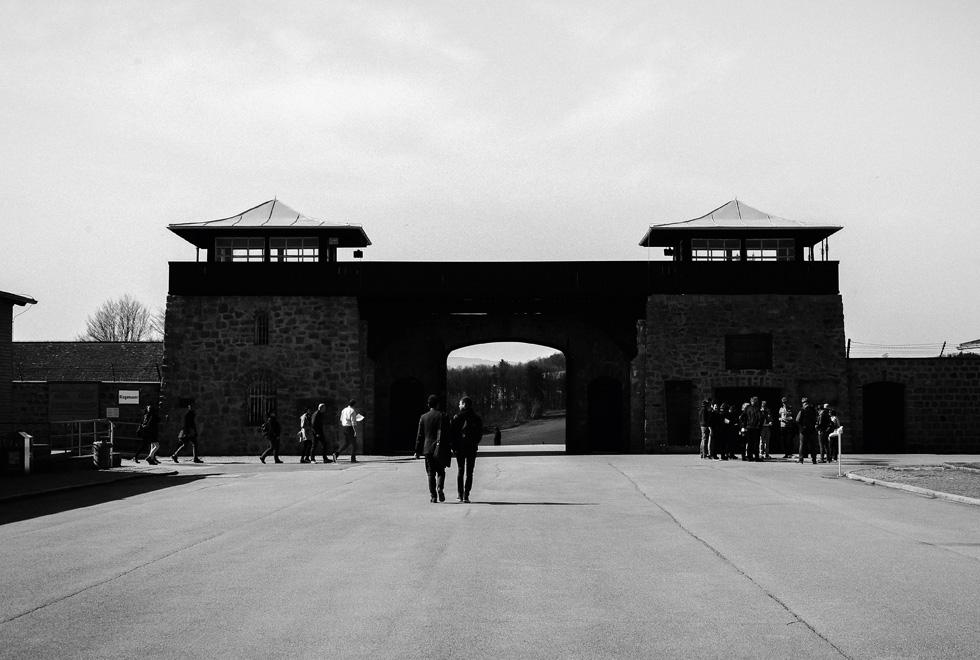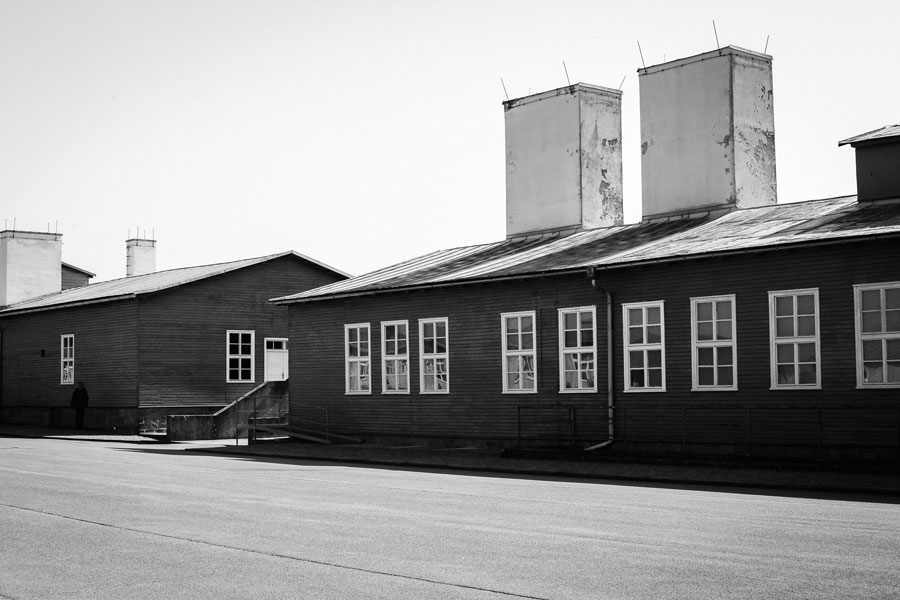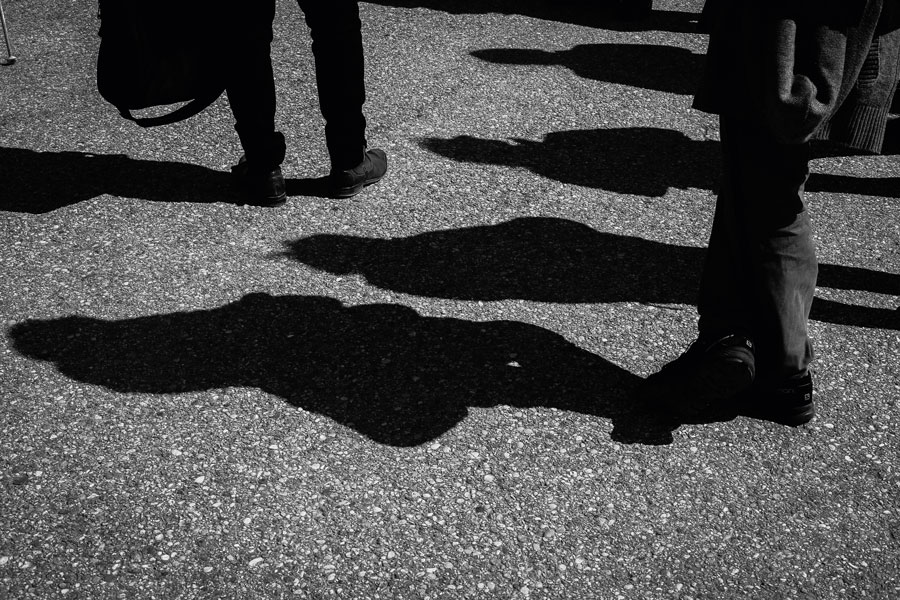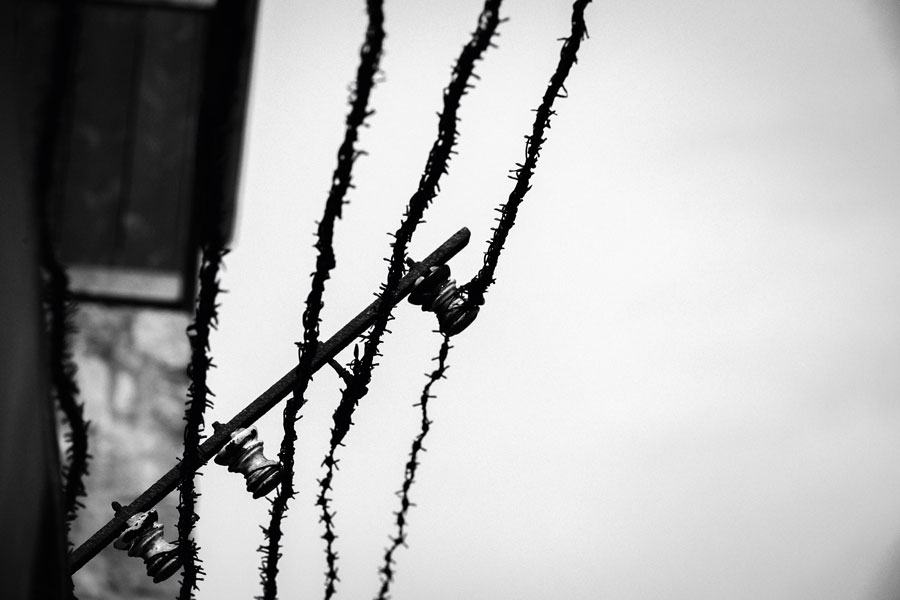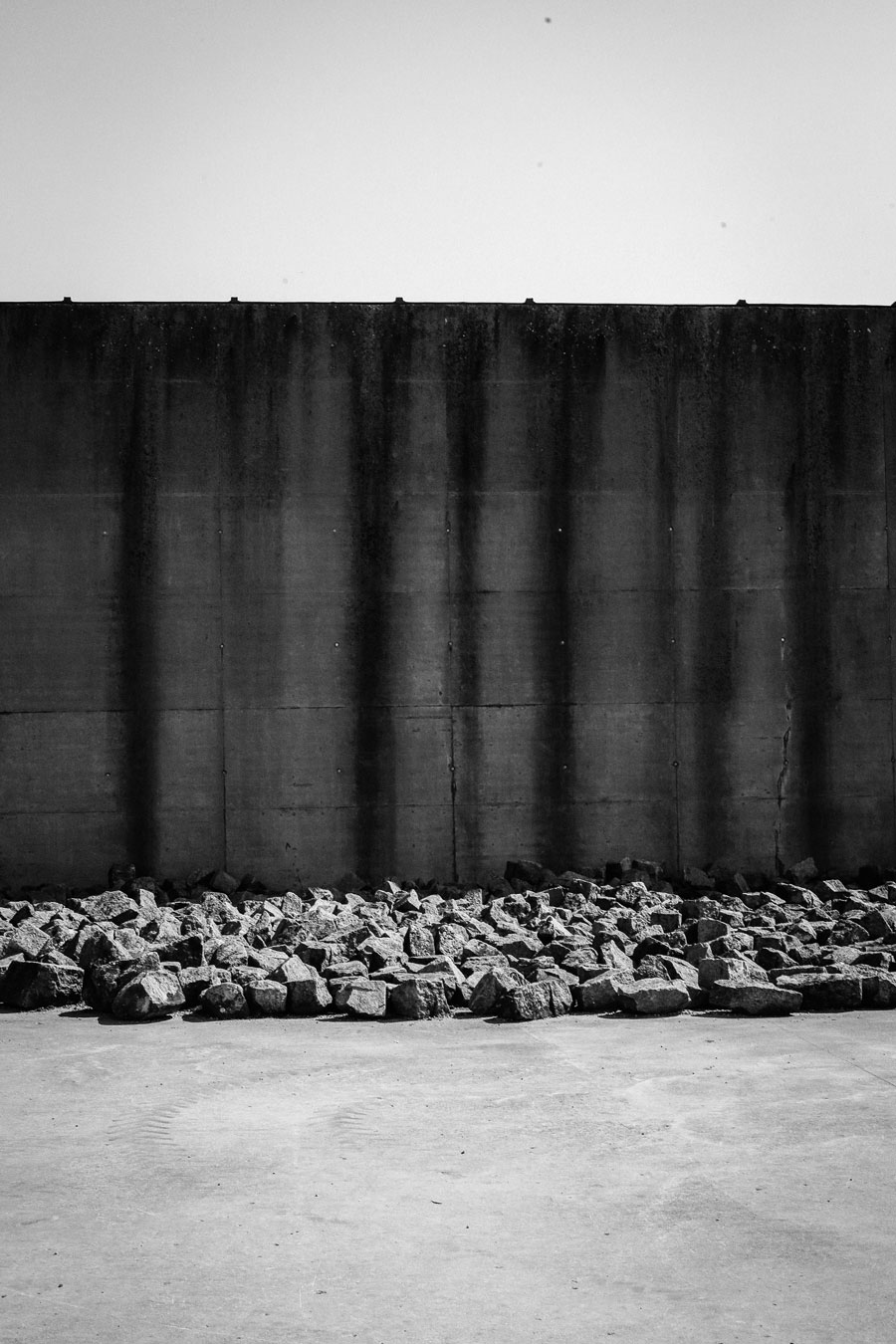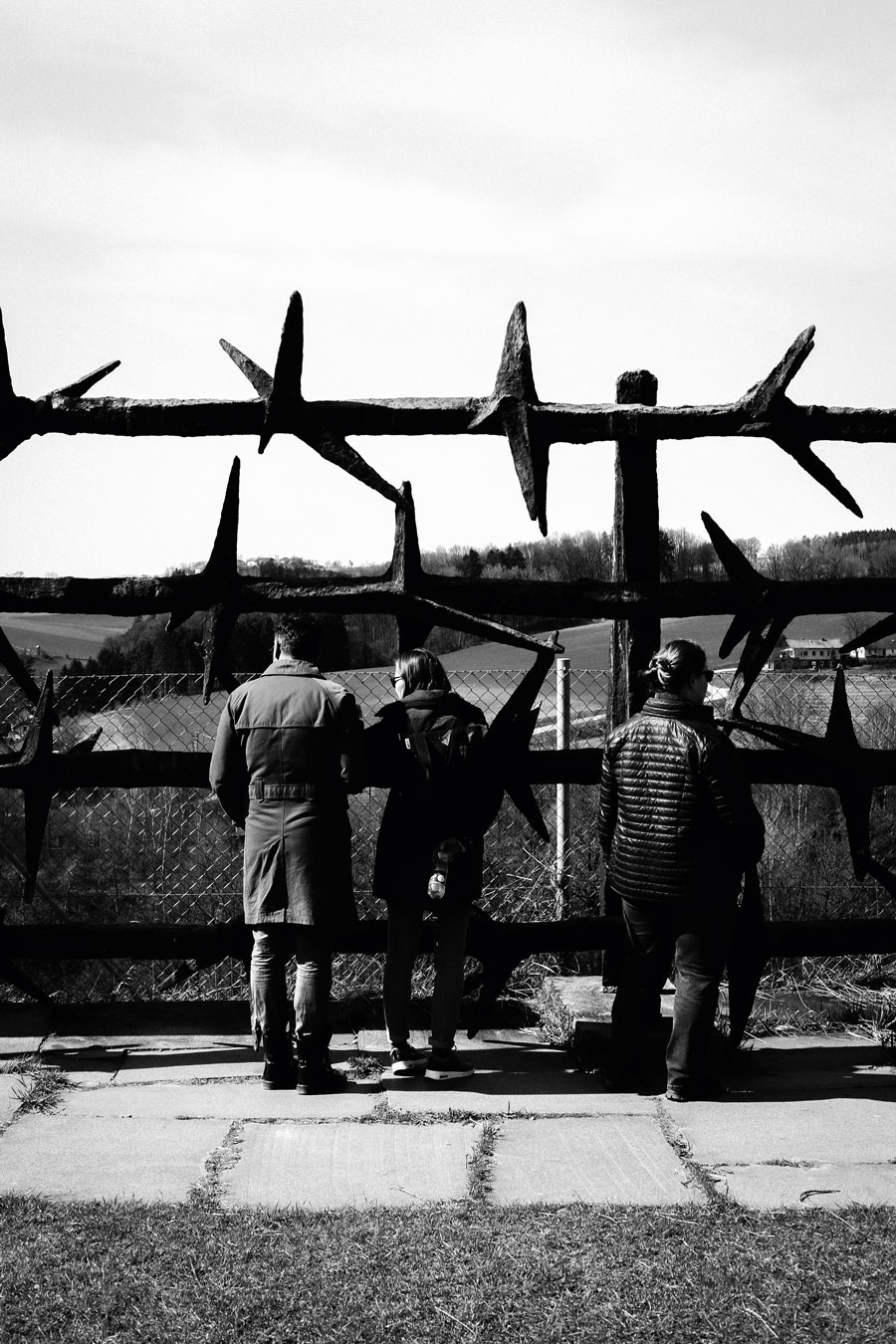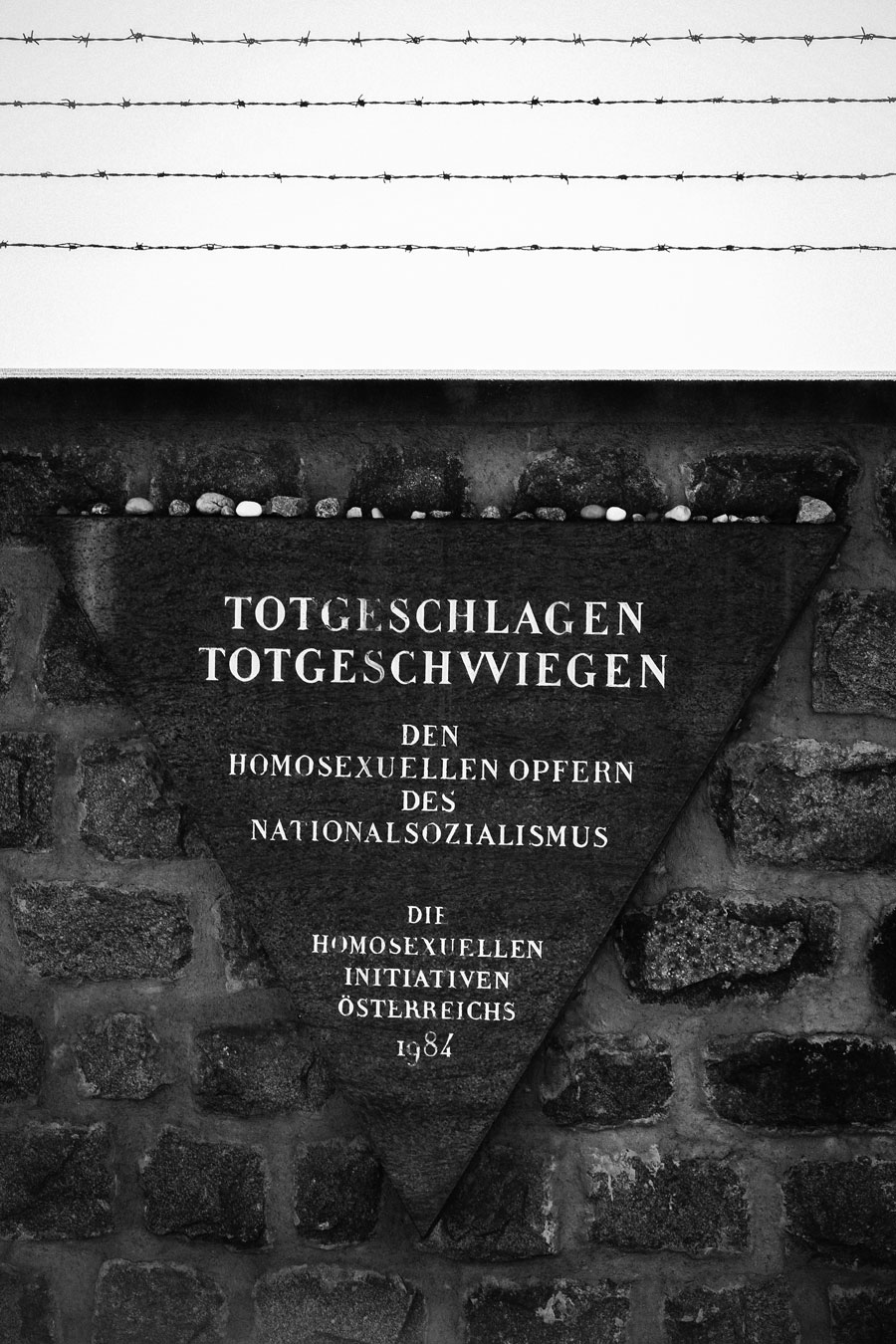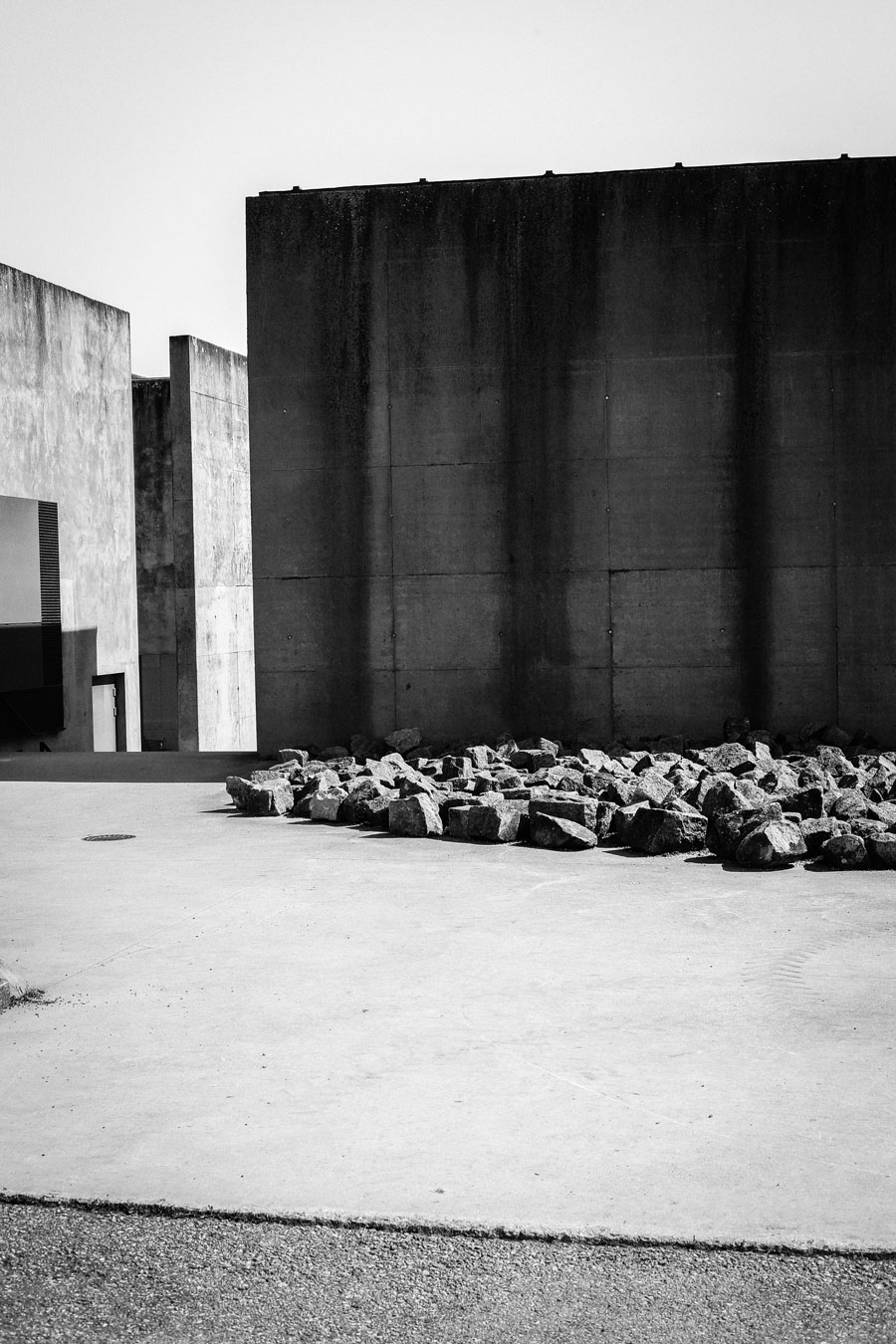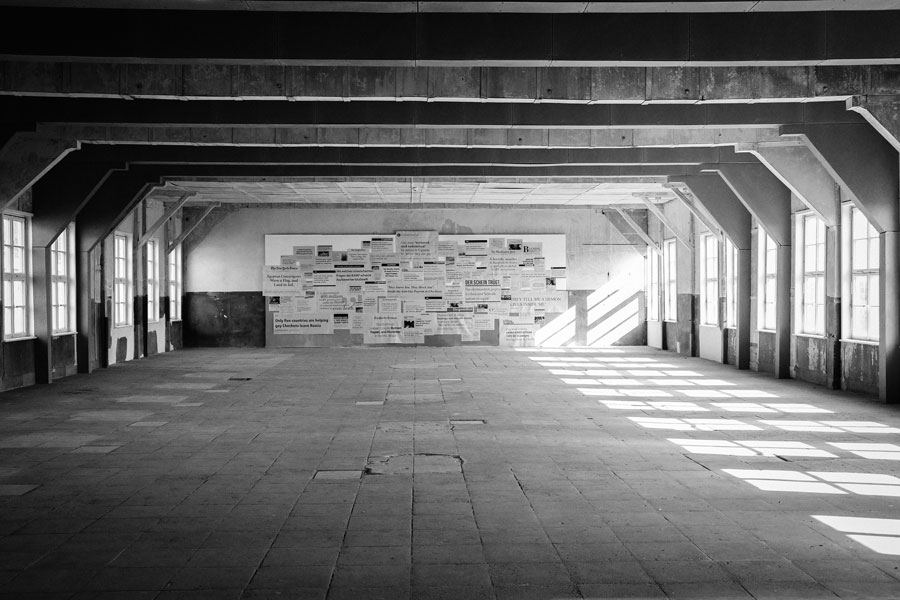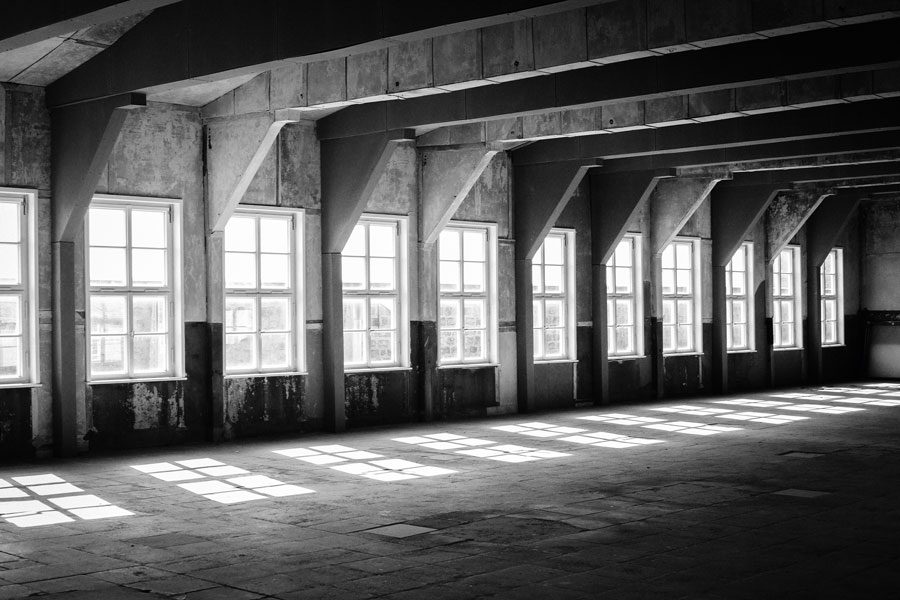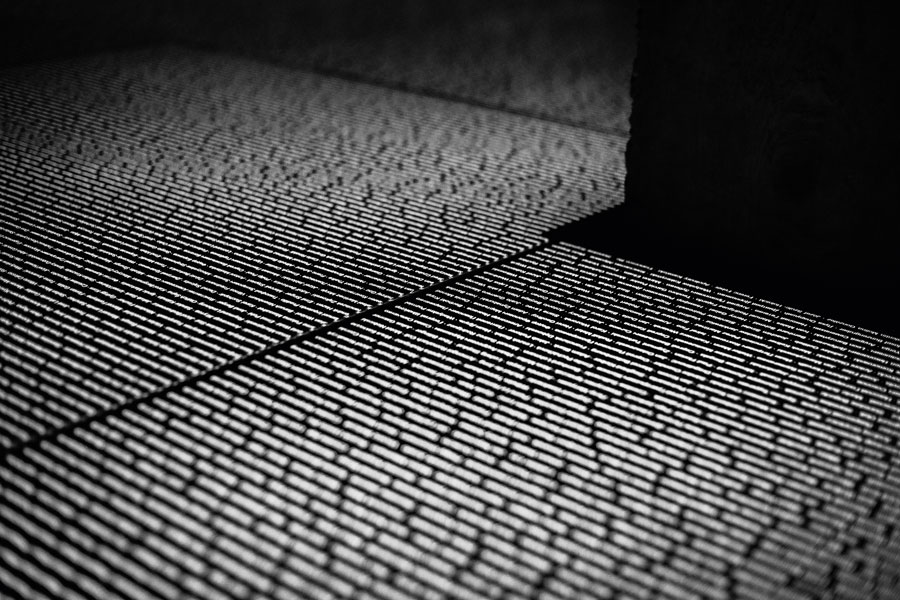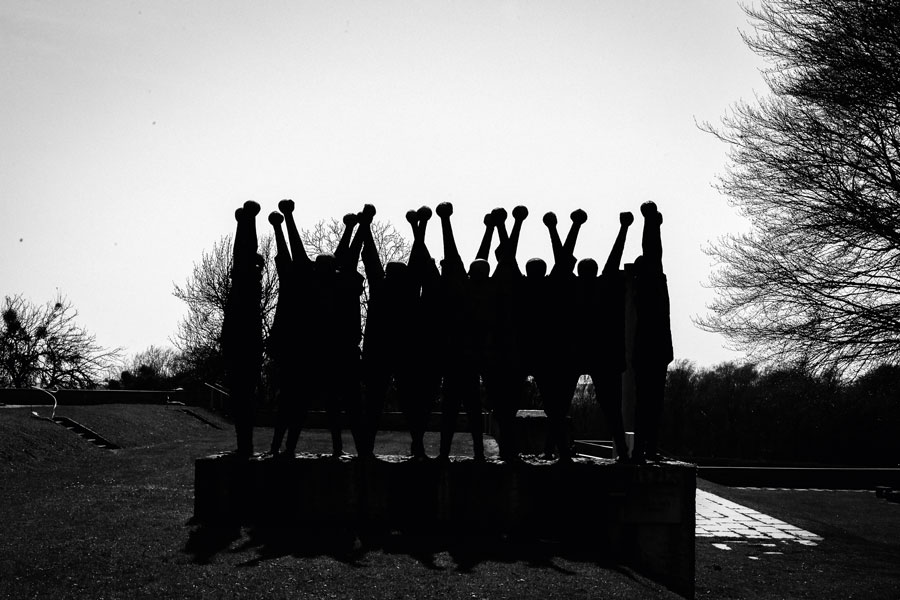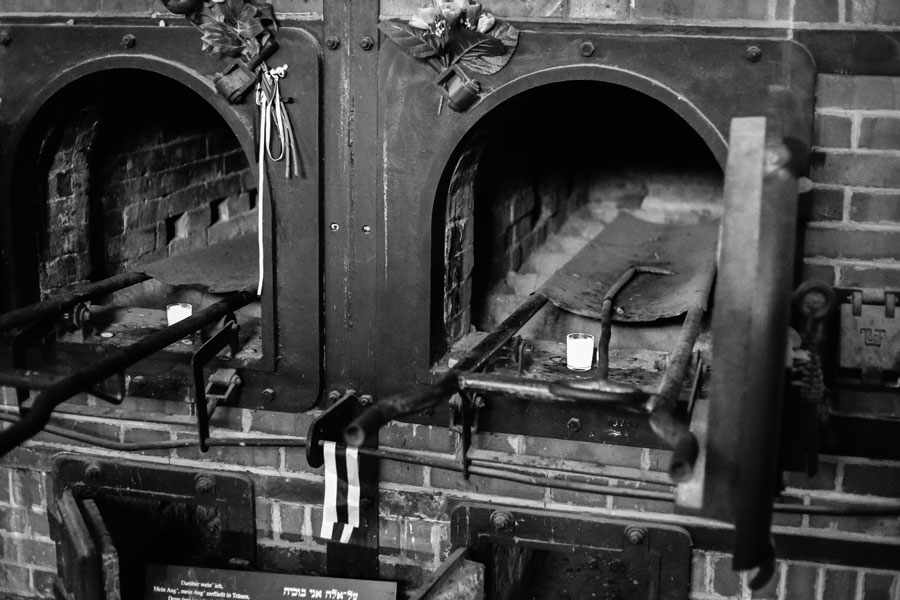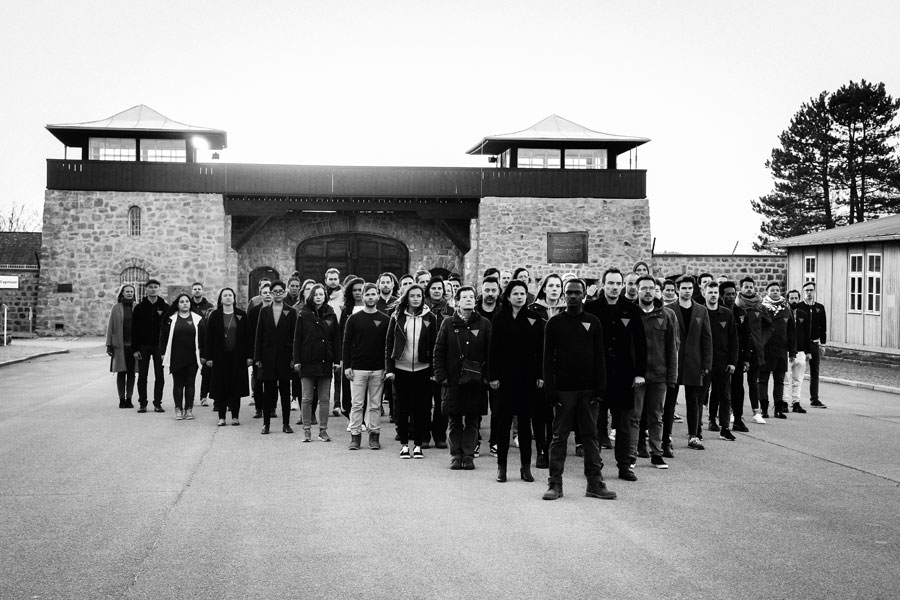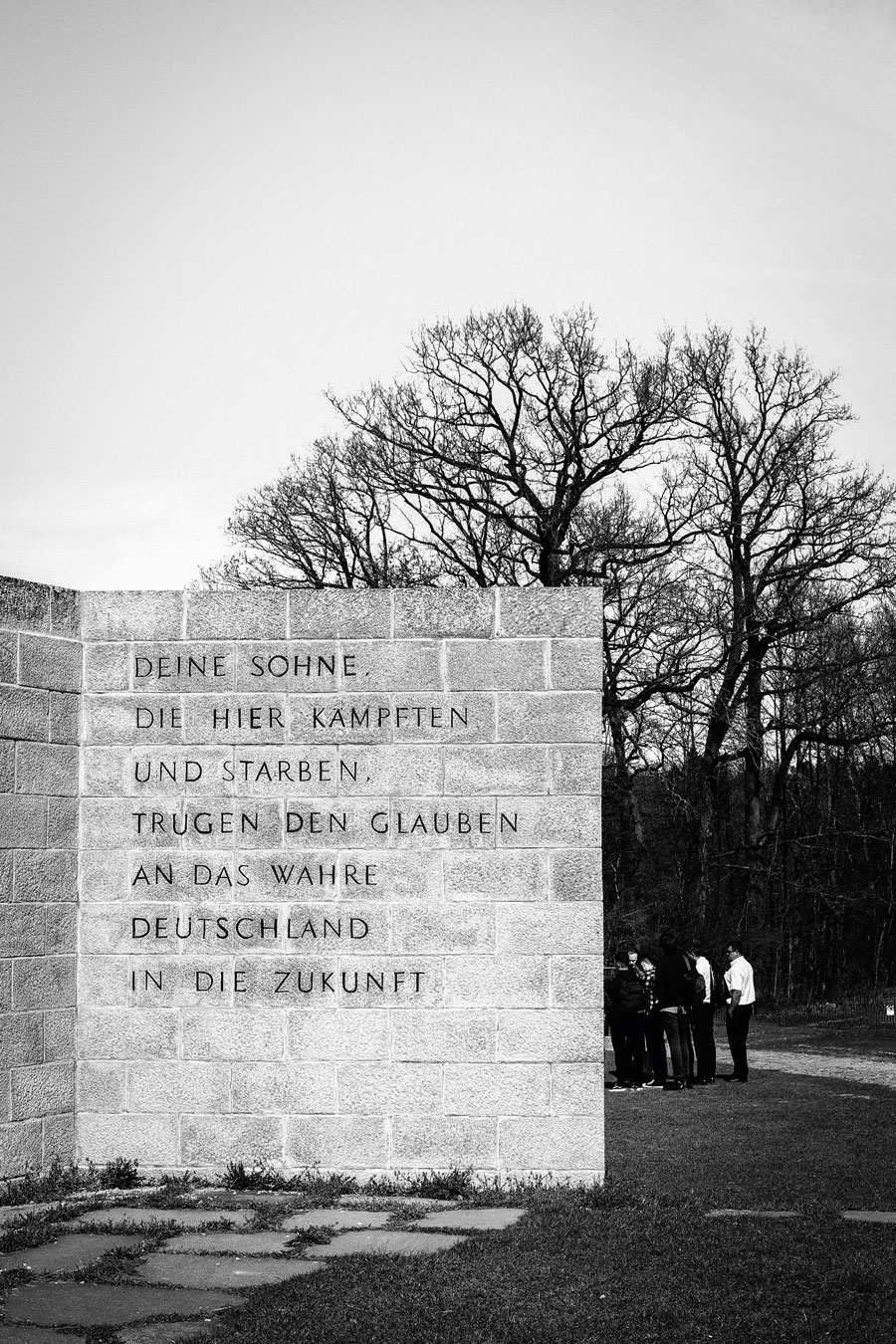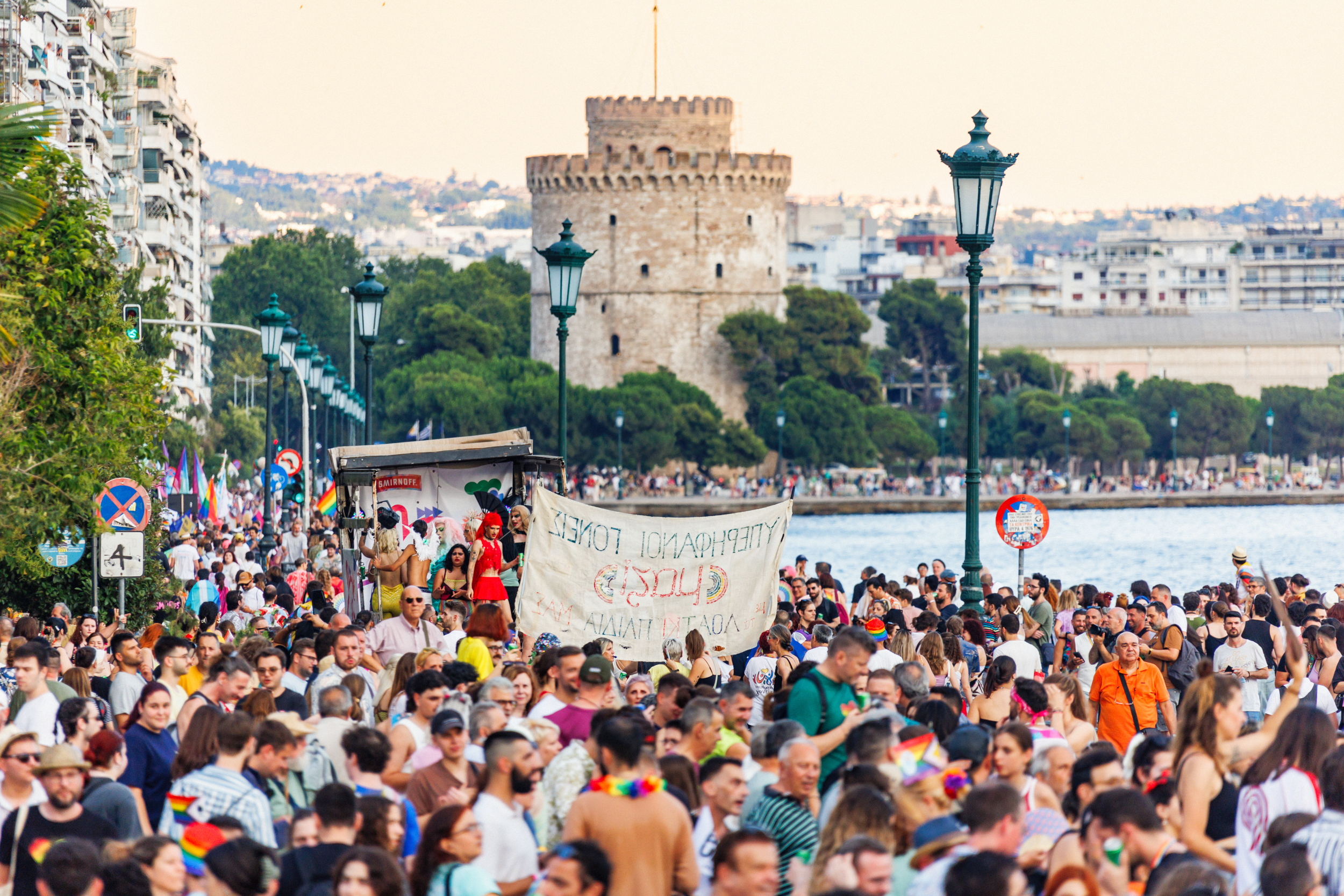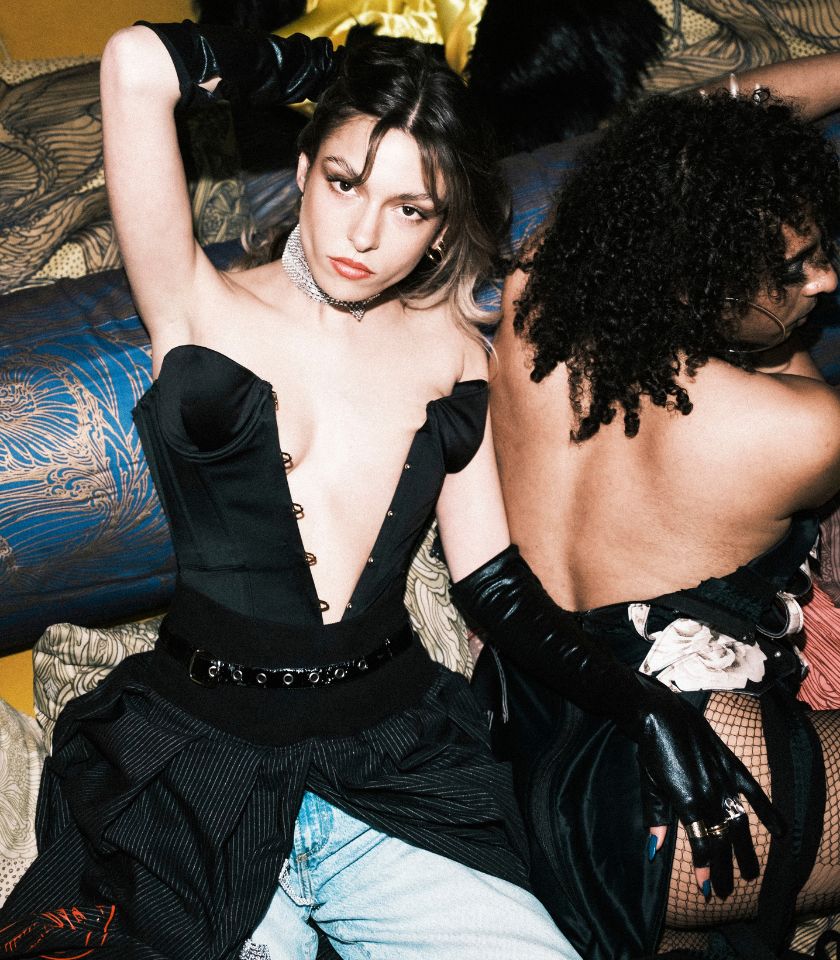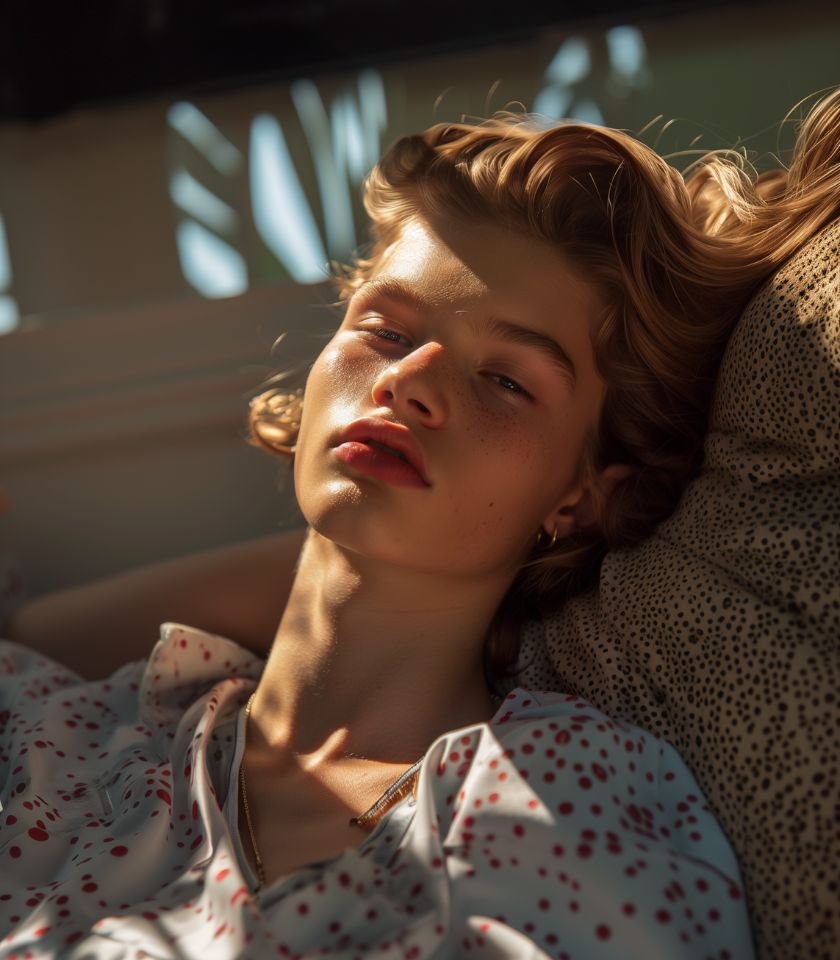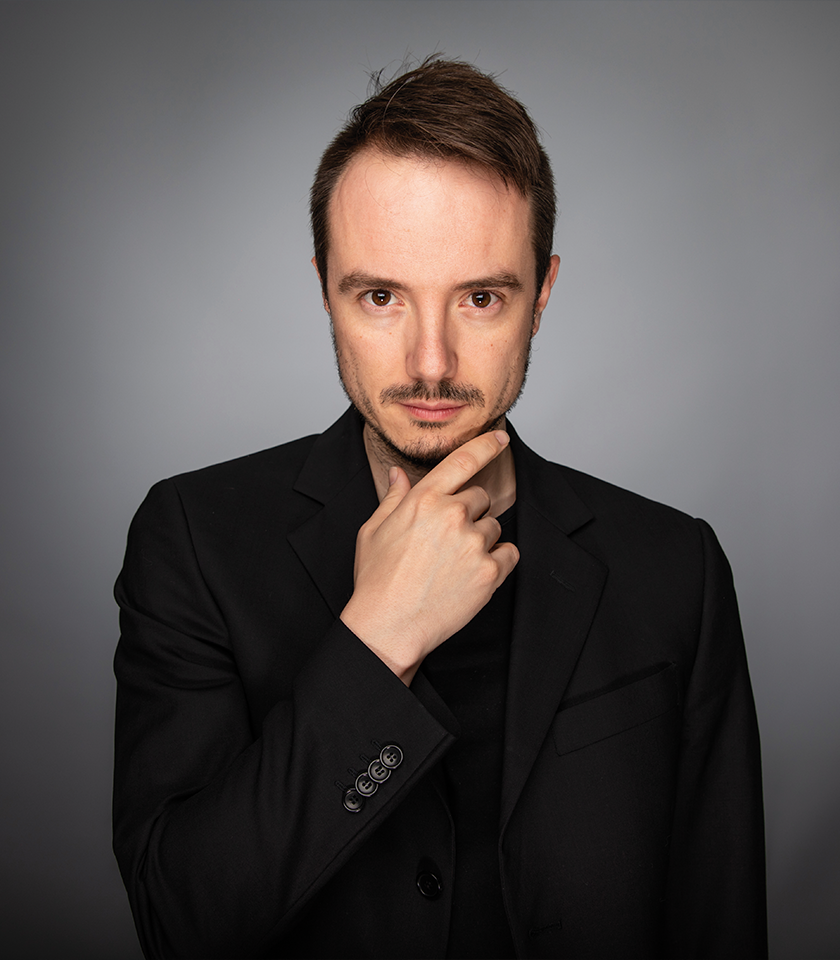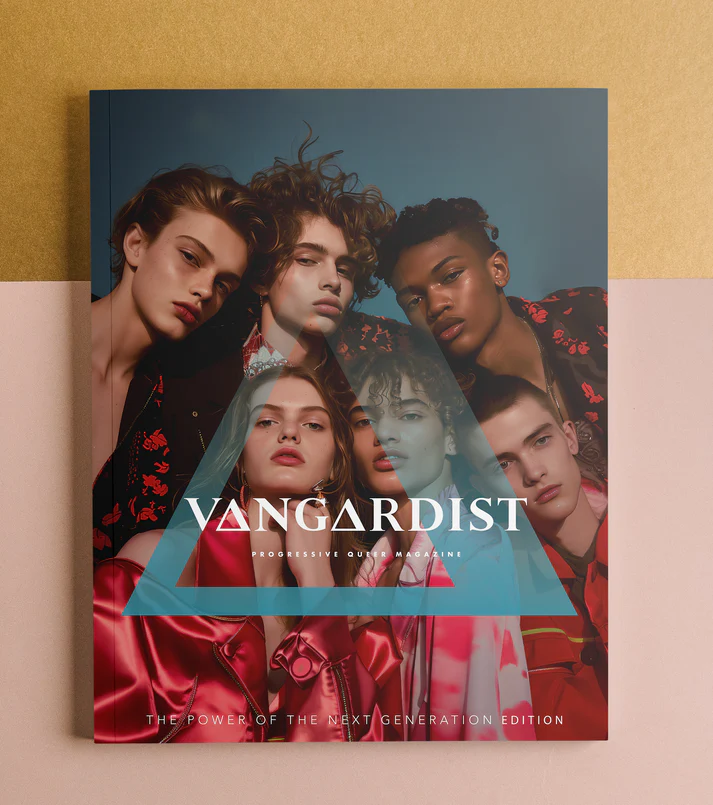“We’ve just got word of this*, but today, the Austrian Federal Office for Immigration and Asylum denied a Chechen residence in Austria on the grounds that Russia supposedly has an intact LGBTQI+ scene – even though we know that gay men are being abducted there,” reports Julian Wiehl, editor-in-chief of Vangardist magazine, shortly before our tour of the memorial site at Mauthausen, the former Nazi concentration camp, begins. The news feels like a slap in the face at first, but it does reinforce what we are about to do. Together, we want to make a clear statement against the persecution of queer people worldwide. Often, the word homophobiafeels barely adequate to express this cruelty.
THE CONSTANT FEAR OF MURDER
Before the filming begins, we take a tour of the grounds of the memorial site to learn more about the conditions Mauthausen’s former prisoners lived under. “What people don’t understand,” explains our guide Karl Hinterhauser as we stand in an emptied-out barrack, “is the fact that the everyday didn’t exist here: prisoners always lived in fear that they would, perhaps, not survive the next two hours.” I look around the room and can see everyone’s discomfited glances.
When we step back out into the bright sunlight and walk towards the roll-call square, I get into a conversation with Naila. Again and again during the tour, she spoke up to comment and ask questions because she wanted to know more about the camp. This is her first visit to a concentration camp memorial site. “I spent most of my youth in Dubai. We weren’t taught about Nazi history at all. In some of our history books, the pages about it were even torn out.”
WE ARE ASKED TO ASK
There’s a respectful togetherness in the group: we listen to each other and feel we can openly ask questions. Also our guide asks us repeatedly for our own assessments and impressions. The fact that many of us would have been persecuted during the Holocaust edges in again and again. And how it must feel to still be persecuted for one’s sexuality can be difficult to fully grasp. That’s why we want to be the voice of those who cannot make their own voices heard today, and as we enter the former death row, the final part of the tour, I realize the sheer number of people we’re here for today. It is a dark room written with the names of nearly every prisoner who was murdered in Mauthausen. In tiny lettering, each victim of Mauthausen has been given one last bit of dignity: their full name instead of a tattooed number.
FORMING THE TRIANGLE
And so we march resolutely back to the roll-call square. Here, we are set to form ourselves into a triangular shape and attach pink triangles to our clothing – like those triangles that had to be worn by homosexual prisoners in many Nazi concentration camps. Each of us is assigned a position in the triangle, based on height. The equipment is set up while our photographer, Olaf Blecker, who’s photographed many prominent figures, from Angela Merkel to Samuel L. Jackson to Donatella Versace, takes a still photo: “Now everyone look at the camera again. With great urgency!” And that says it all. This is a topic that so many people are uninformed about – not because they mean to look away, but because nobody’s talking about it: about the persecution of queer people in the “Third Reich”, about the homophobia which even in Western European society still isn’t history, and about the situation in so many countries where queer people are still persecuted as criminals.
www.pinktriangleissue.com
Text: Alex Baur
Fotos: David Meran

